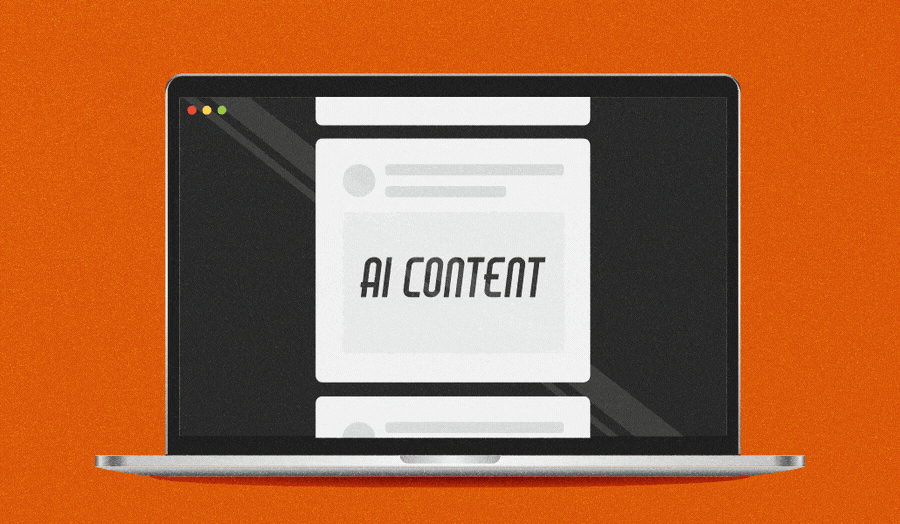Mondelēz takes AI in-house to try and curb marketing costs

By Kimeko McCoy • October 23, 2024 •

Ivy Liu
Another tentacle of the in-house trend has seemingly wriggled loose, this one powered by AI.
Snack company Mondelēz International is creating an in-house generative AI content creation platform in collaboration with Accenture and Publicis Groupe, though financial details were not made available. AI-generated campaigns are expected to roll out as early as Q1 of next year across several markets, including the U.S., U.K., Germany, India and Latin America, according to Jon Halvorson, svp of consumer experiences and digital commerce at Mondelēz International.
“Mondelez is going to build a proprietary platform that we own, that our agencies and we will use — hands on keyboard — and that system essentially will be a main generator of content for us in the future,” he said. The plan is to start with content geared toward landing a sale (i.e. the more performance marketing bits) and will scale up to television ads, he added.
It’s an upfront investment in what Mondelēz hopes will pay off by ultimately reducing marketing costs. Mondelēz intends to ramp up how much content it’s producing, have generative AI optimize that content, personalize it and spit it out fast enough to feed the beast.
As a means of experimentation, Mondelz has done an estimated 40 campaigns before building out its own internal AI processes. Halvorson did not offer specifics on past campaign performance as it relates to cost savings. He did, however, say that personalization in past campaigns has led to an increased return on investment.
“When we personalize well, we see 20%-plus, and usually, that’s increasingly driven by AI. Personalization drives 20-30% higher increase in ROI than not,” he said without offering a specific dollar amount. He later added, “We think it’s going to help us continue our journey of personalization and we believe it will create some efficiency in our non-working [dollars].”
Mondelēz spends more than 60% of its advertising and consumer promotion dollars on creative development and production, he said. Hence, why the company is looking toward AI to scale and pump out more creative more efficiently.
It’s unclear just how much the snack company expects to save in marketing costs or when those cost savings are expected to kick in as Halvorson did not outline specifics. Instead, he said, “The question is: Can we improve the quality and the effectiveness of our advertising by 10 to 15% and can we reduce our non-working [dollar] costs over time, 10, 15-20%?” The thesis is that AI-powered marketing will create a bigger volume of content and make it more personalized on a more cost-efficient scale, he said.
Klarna, the buy now and pay later fintech company, made a similar move earlier this year, estimating that using AI in its marketing has accounted for roughly $10 million per year in savings. While Klarna praised the efficiency and cost-saving benefits of leveraging AI, the move raised concerns about potential job losses and sparked questions about if AI would undercut agency-client relationships.
As more companies like Mondelēz, Klarna and others look to make marketing bigger, better and faster by building out their own AI technology, that conversation may bubble up once again. Increasingly, marketers are facing pressure from the C-suite to do more with less, which could make the cost-cutting efficiencies of AI more appealing.
“There’s nowhere near as much time for creativity and strategic exploration as there used to be,” said Nilesh Ashra, CEO and founder of OK Tomorrow, an innovation consultancy. “The opportunity is to figure out how to use generative AI at the early part of the exploratory process to come up with more expansive, more innovative ideas.”
In the digital world of data-obsessed, ROI-driven marketing, marketers are increasingly risk averse, using AI to optimize the risk out of ideas before going to market, said Tommy Means, founder and chief creative officer of Mekanism, a creative ad agency.
“Long gone are the days when a Dan Wieden [advertising executive who co-founded ad firm Wieden+Kennedy] can walk into a room and say, ‘Trust me, this tagline of ‘Just Do It’ is going to be awesome, buy it’,” Means said.
That’s not to say that it’s going to be a matter of man versus robot any time soon. For all the AI hype, there are lingering questions about data privacy, misinformation and images that aren’t quite right (like a human with six fingers or smiling with a suspicious amount of teeth). Recently, Perplexity AI and OpenAI have faced lawsuits from publishers and creators over copyright infringement and usage rights. So human oversight remains in place for now, per Halvorson.
“We’re building this with agency partners and we expect humans to be in the loop,” he said.
https://digiday.com/?p=558619


